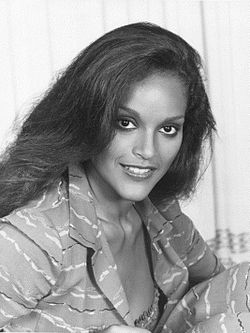From Northeast Ohio to Trailblazing TV Icon: Jayne Kennedy’s Journey in Her Own Words
CLEVELAND, Ohio – Watching the NFL in the late 1970s was a very different experience than it is today. There was no internet, no endless cable options, and certainly no flashy graphics lighting up your TV screen. For most viewers, tuning in meant seeing Brent Musburger anchor what would become the model for modern sports studio shows: CBS’ The NFL Today. Former player Irv Cross offered expert analysis, while Jimmy “The Greek” Snyder delivered predictions with his famously unpolished charm.
But there was another face on screen, one that broke the mold of sports television: an African-American woman named Jayne Kennedy.
At 73, Kennedy’s life reads like a blueprint for versatility, perseverance, and breaking barriers. Her memoir, Plain Jayne, released on Tuesday, Sept. 2, tells that story. The title might suggest modesty, but Kennedy is anything but plain.
Raised in Wickliffe, Ohio, among six siblings, Kennedy’s formative years shaped the woman she would become.
“Some people say, ‘Why do you spend so much time on that part of your life in this book? Why don’t you tell all Hollywood?’” she told cleveland.com. “But I had to tell that because this is who I am. That’s one of the reasons why the book says ‘Plain Jayne.’ Because it’s me at my core. My core is the way I grew up, the way my family raised me. The person I became is someone who is not a nasty, evil person.”
As she writes in her book, “Wickliffe would always be my home base, my safe haven.”
Her memoir spans decades and coasts, offering candid reflections on her career, her personal life, and the challenges she overcame. Interestingly, the idea for the book goes back 25 years, sparked during a television show with psychic Kenny Kingston. He told her, “You know who wants you to write this book? Your grandmother.” The comment left Kennedy breathless—her grandmother had long passed—but it gave her a nudge to start reflecting on her life.
Even with a lifetime of experiences, Kennedy approached her memoir with humility, choosing honesty over self-aggrandizement. Winning Miss Ohio in 1970 didn’t make her feel superior.
“I never see myself as ‘Oh Jayne, you’re all that,’” she said. “I’ve never been that type of person. When I heard ‘The new Miss Ohio is Jayne Harrison,’ I looked around saying, ‘Who’s going to win?’ My sister had to nudge me, ‘Jayne, you won.’ I’ve always kept my feet on the ground. I made a promise to myself that I would never become anyone but Jayne from Wickliffe, Ohio.”
Kennedy was inspired by pioneers such as Shirley Chisholm, the first Black woman elected to the U.S. Congress, whom she met in Cleveland. While she briefly considered careers in drama or politics, modeling and television offered a practical entry point. By her teens, she was appearing in commercials in Cleveland, and over eight years, she built an acting resume.
When she learned of an opening on NFL Today, she thought, “I can do this job.” But her first response from the network was a blunt, “They’re not looking for anyone like you.” Translation: They wanted a journalist, and they wanted a white woman. Kennedy refused to be deterred. She called Jim Brown, who intervened on her behalf, eventually landing her a spot among 16 finalists out of 2,000 applicants.
In the interview room, it was Kennedy against 16 blonde women. Instead of a rigid Q&A, she relaxed by playing backgammon—a favorite game—and simply let her authentic self shine. It worked. When it came time to make a decision, Brent Musburger stood up and said, “It’s Jayne or nobody.”
Her career quickly became a testament to persistence and ingenuity. She interviewed boxing promoter Don King, pool legend Minnesota Fats, and forged a meaningful friendship with Muhammad Ali, which would prove invaluable early in her CBS tenure.
Once, during the Ali-Frazier fight in Cleveland, she was caught in a chaotic crowd trying to access a close-circuit telecast, ending up pushed through a glass window. She emerged unscathed, determined as ever. Later, she convinced CBS to fly her to New Orleans for an Ali interview before her initial six-week trial contract even expired. The result? She earned a full-year contract.
Kennedy also found ways to support Black businesses, negotiating credit for a Manhattan boutique that supplied her wardrobe, giving Zagobi Boutique a line in the credits every week.
Her love for football was personal and wide-ranging. She cheered for the Cleveland Browns, Pittsburgh Steelers, and Dallas Cowboys—each tied to a distinct memory or personal connection. Her passion was matched by her drive: whether acting, singing, dancing, producing exercise videos, or sewing outfits for the Oscars, she committed fully to whatever she pursued.
Even now, Kennedy continues to innovate. She designs fine jewelry, launches fragrances, and runs a company aptly named Not Done Yet, embodying her lifelong mantra.
“I’d like for people to know that I opened doors for many to follow in,” she says. “It might be trite to say that because a lot of people do say that. But I can see the actual doors that I did open.”
Jayne Kennedy’s story is one of courage, creativity, and unwavering authenticity—a reminder that breaking barriers often begins with the simple decision to be unapologetically yourself.



